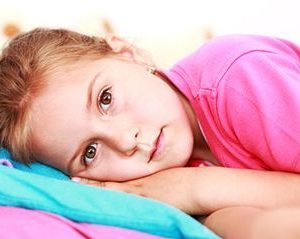- Could Your Grocery Store Meat Be Causing Recurring UTIs?
- Are You Making This Expensive Thermostat Error This Winter?
- Recognizing the Signs of Hypothyroidism
- 10 Strategies to Overcome Insomnia
- Could Artificial Sweeteners Be Aging the Brain Faster?
- Techniques for Soothing Your Nervous System
- Does the Water in Your House Smell Funny? Here’s Why
- Can a Daily Dose of Apple Cider Vinegar Actually Aid Weight Loss?
- 6 Health Beverages That Can Actually Spike Your Blood Sugar
- Treatment Options for Social Anxiety Disorder
Too Little Sleep May Harm Young Kids’ Brains

For peak performance, school-age children need more than a healthy diet and exercise. They also need plenty of sleep.
A new study finds that elementary school kids who get less than nine hours of sleep each night show significant differences in some brain regions responsible for memory, intelligence and well-being compared to those who get the advised nine to 12 hours’ sleep.
“We found that children who had insufficient sleep, less than nine hours per night, at the beginning of the study had less grey matter or smaller volume in certain areas of the brain responsible for attention, memory and inhibition control compared to those with healthy sleep habits,” said study co-author Ze Wang. He is a professor of diagnostic radiology and nuclear medicine at the University of Maryland School of Medicine, in Baltimore.
“These differences persisted after two years, a concerning finding that suggests long-term harm for those who do not get enough sleep,” Wang said in a university news release.
These differences were associated with more severe mental health issues, such as depression, anxiety and impulsive behavior, in those who got too little sleep. Inadequate sleep was also linked to difficulties with memory, problem solving and decision making.
The study findings were published online July 29 in The Lancet Child & Adolescent Health.
To promote optimal health, the American Academy of Sleep Medicine recommends children aged 6 to 12 sleep for nine to 12 hours every night.
For the new study, the researchers analyzed information gathered from more than 8,300 children aged 9 to 10 years old who participated in the Adolescent Brain Cognitive Development (ABCD) study. The investigators looked at MRI scans, medical records, and surveys the kids and their parents filled out at the start of the study and at a checkup at age 11 to 12. The ABCD study, supported by the U.S. National Institutes of Health, is the largest long-term investigation of child health and brain development in the United States.
The researchers discovered that participants in the sufficient sleep group tended to gradually sleep less over the course of two years, which is typical as kids enter adolescence, whereas participants in the insufficient sleep group’s sleep patterns did not significantly change. The team also took into account various factors, such as family income, gender and whether or not they were in puberty, that might affect how much sleep kids get, as well as how their brains develop.
“We tried to match the two groups as closely as possible to help us more fully understand the long-term impact of too little sleep on the pre-adolescent brain,” Wang said. “Additional studies are needed to confirm our finding and to see whether any interventions can improve sleep habits and reverse the neurological deficits.”
The American Academy of Pediatrics advises parents to instill in their children healthy sleep habits. Its advice includes prioritizing adequate sleep as a family, maintaining a regular sleep schedule, promoting physical activity during the day, limiting screen time and avoiding screens an hour before bed.
More information
The Child Mind Institute has tips for preparing kids to return to school.
SOURCE: University of Maryland School of Medicine, news release, July 29, 2022
Source: HealthDay
Copyright © 2026 HealthDay. All rights reserved.










